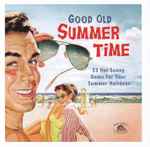
The Four Mints
The Four Mints (also known simply as the Mints) were a true oddity, a respected white vocal group in the midst of the early rock & roll era, capable of doing convincing R&B. James Wilson (lead), Gene Warr (first tenor), Aubie McSwain (second tenor), and Al Warr (bass) had known each other since childhood and sung together for years, throughout the '40s. Their main influence was gospel music, and they'd sung in churches for most of their lives. They quartet had sung locally around Center, TX, mostly at local events and church functions. They took on the name The Four Mints and crossed over into popular music and R&B in 1954-1955. They'd always listened to the black R&B vocal groups of the period and proved good -- even inspired -- students: unlike, say, the Crew Cuts, The Four Mints didn't "bleach" out the sounds that they learned to create, but kept them intact even as they made them their own. They were, in many respects, the group equivalent of the phenomenon that Sam Phillips claims to have been searching for, a white man who could sing black music. What's more, they were good enough to get bookings far outside of Center, even managing to cross paths with Elvis Presley in the process and even getting his future drummer, D.J. Fontana, on the skins for some of their gigs in Louisiana. They cut a handful of songs for Lin Records in Gainesville, TX, including "Night Air" and "Little Mama Tree Top" (the latter unissued for 40 years). Although sometimes identified, for convenience's sake, as a doo wop group, the Mints were more animated than most of the acts to which the name is usually applied -- their models were groups like the Treniers, most of all, more so than the balladeer-type outfits usually called doo wop groups. The Four Mints left Lin after just a few months for the much larger Decca label in 1956. They failed to generate any hits, but Decca's promotional efforts on their behalf and the resulting exposure gave them the intro the needed to break out of the south and become a national act. They followed their idols, the Treniers, into the same Las Vegas clubs and remained popular for years. McSwain left the quartet in 1960. He was replaced, and the group lasted for another two years, breaking up in 1962.

Your Tender Lips
The Catalinas (15), The Four Mints (2)
1986
Eldorado Records (9)
7", Promo

Wild Streak / Dry Bones
The Four Mints (2)
1964

The Fabulous Four Mints
The Four Mints (2)
1963
Aztec Records (10)
LP, Album

Night Air / What 'Cha Gonna Do
The Four Mints (2)
1959
Choctaw Records (5)
7", Single, Mono

Teenage Wonderland / Hey Little Nell
The Four Mints (2)
1958
National Recording Corporation
7", Single

You Belong To My Heart / Wolf
The Four Mints (2)
1958
National Recording Corporation
7", Single

Gold / Ruby Baby
The Four Mints (2)
1957

Pina Colada / Tomorrow Night
The Four Mints (2)
National Recording Corporation
7", Single

On The Prowl With The Wolf
Various
2025
Bear Family Records
CD, Comp

Good Old Summertime (33 Hot Sunny Gems For Your Summer Holidays)
Various
2020
Bear Family Records
CD, Comp

Snazzy Sugar: The Pure Essence of Rock & Roll From West Texas And Beyond
Various
2012
Fantastic Voyage
3xCD, Comp

The Rockin' South
Various
2007
Ace
CD, Comp

The Rock-a-Round
Various
2007
Norton Records (2)
LP, Comp

35 Doo-Wops From NRC
Various
2004
National Recording Corporation
CD, Comp

Doo-Wop Party
Various
2002
Doo Wop Records
CDr, Comp

The Lin & Kliff Story
Various
1998
Bear Family Records
4xCD, Comp

Calling All Rock 'n' Roll Collectors Vol.4
Various
1994
Cat Records (8)
CD, Comp

Tough Teenage Stuff Vol.3
Various
1994
Teen-Life Records
CD, Comp

14 Great All-Time Jivers Vol 2
Various
1982
Jivin'
LP, Comp

Doo-Bop-Jivers Vol. III
Various
Wop Record
CD, Comp

Rockin 'n' Rare Doo Wop Volume 3
Various
Not On Label
CD, Comp

Desperate Rock 'N' Roll Volume 12
Various
Row My Boat
The Four Mints
Too Far Gone
The Four Mints
you're my desire
The Four Mints
Why Did I Go
The Four Mints
Too Far Gone/Four Mints
The Four Mints
In A Rut
The Four Mints
Too Far Gone (Rehearsal)
The Four Mints
You're My Desire/Four Mints
The Four Mints
Keep On Loving You
The Four Mints
Do You Really Love Me
The Four Mints
Night Air
The Four Mints
Can't Get Strung Out
The Four Mints
You'll Want To Come Back
The Four Mints
They Were Wrong
The Four Mints
In A Rut (Rehearsal)
The Four Mints
Busy Body Rock
The Four Mints
Row My Boat/Four Mints
The Four Mints
Wolf
The Four Mints
In A Rut (Instrumental) (Rehearsal)
The Four Mints
Endlessly
The Four Mints
